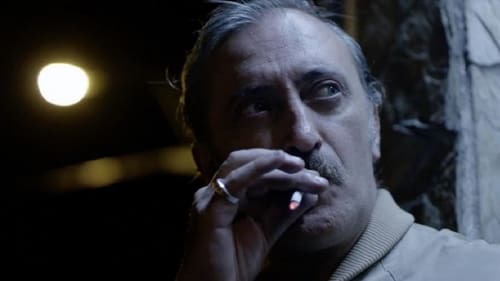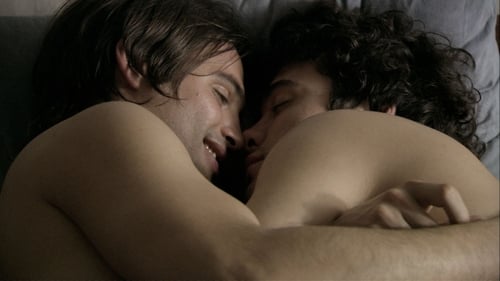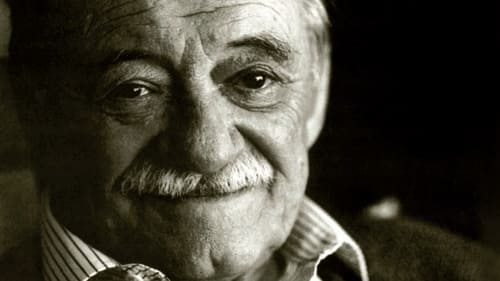
Writer
A small town, two families joined together over time. A man who does not forget the values of honor and fraternal friendship. From the director of The Journey to the Sea, history proposes the coalition of two worlds or, perhaps, the same but with different ways of understanding it.

Director
A small town, two families joined together over time. A man who does not forget the values of honor and fraternal friendship. From the director of The Journey to the Sea, history proposes the coalition of two worlds or, perhaps, the same but with different ways of understanding it.

Producer
Inspirada en hechos reales Dos periodistas uruguayos se embarcan en una travesía de secretos, simulaciones, encuentros furtivos y paranoia cuando un misterioso informante del ejército los contacta con la intención de revelar pruebas sobre crímenes de la dictadura militar hasta ahora nunca investigados. La entrega se pospone reiteradamente, la paciencia se agota y la ansiedad crece, pero la posibilidad de obtener la información es más fuerte que cualquier sospecha.

Editor
The life of a seal is pretty unfair. During mating season, the strong ones take ten females each, nine males stay without a partner. This wildlife comedy observes a colony of seals and tells the story of one of them: We follow him through the crude beauty of birth, being fed by his mother, and being pushed away when the next new-born is due. His adolescent fight to define his place in life - and finally his efforts during mating season. Fresh, funny and with entertaining narration, the film switches from the sex life of seals to our own manners of courtship and mating. Isn't our life all about reproducing ourselves? What does us humans divide from mammals when it comes to love, sex and reproduction? Aren't we all seals after all...?

Editor
Uruguay /// Leo, un joven en pleno proceso de autoaceptación y definición sexual, se reencuentra con Caro, una ex compañera de escuela primaria que le gustaba cuando eran más pequeños, y que ahora vive su propia crisis personal. Ese reencuentro casual va a repercutir en los conflictos de cada uno, sin que ninguno de los dos sepa lo que realmente le pasa al otro.

Voice from farmacy jingle
Basilio es muy buena gente. Tal vez demasiado buena, pues todos se aprovechan de él. Su esposa lo abandona, sus amigos lo ridiculizan, y es tanta su tristeza que ha decidido suicidarse. Pero justo en el momento en que llevaría a cabo su acto fatalista, recibe una llamada a un celular que no es el suyo. A partir de entonces su vida cambiará hasta encontrar el verdadero valor de la amistad y el sentido de vivir. Las ocurrencias de Irene, la misión de Vera y la labor de Méndez (que da título a la película) harán cambiar la forma de ser y pensar de Basi.

Editor
The documentary looks in the life and work of Mario Benedetti, especially in his poetic work, the keys to an illustrious Montevideo. A man who has had to live several exiles and has received all the awards that this world can give. But above all, the affection of an unconditional, massive and faithful audience that follows him everywhere and pampers him every day with their applause and reading. A sad childhood, a youth full of work and reading, and a maturity full of commitments marked Benedetti. His work testifies the history, that which only artists can tell.

Writer
El viaje hacia el mar es una película uruguaya de 2003 basada en el cuento homónimo de Juan José Morosoli, dirigida por Guillermo Casanova y protagonizada por Hugo Arana, Diego Delgrossi, Julio César Castro, Julio Calcagno, Héctor Guido y César Troncoso. Fue nominada en los Premios Goya 2004 a mejor film extranjero de habla hispana y ganadora del Colón de Oro del 29º Festival de Cine Iberoamericano de Huelva. En el verano de 1963, en un bar de la ciudad de Minas, el sepulturero Quintana (Julio Calcagno), Rataplán (Diego Delgrossi), barrendero y Siete y Tres Diez (Julio César Castro), vendedor de loterías, esperan a Rodríguez (Hugo Arana) que los va a llevar en su camión a ver el mar por primera vez. Los acompañan El Vasco (Héctor Guido) y un Desconocido (César Troncoso) que se une a último momento. A lo largo del viaje los personajes irán revelando su forma de ver el mundo y vivir la vida.

Director
El viaje hacia el mar es una película uruguaya de 2003 basada en el cuento homónimo de Juan José Morosoli, dirigida por Guillermo Casanova y protagonizada por Hugo Arana, Diego Delgrossi, Julio César Castro, Julio Calcagno, Héctor Guido y César Troncoso. Fue nominada en los Premios Goya 2004 a mejor film extranjero de habla hispana y ganadora del Colón de Oro del 29º Festival de Cine Iberoamericano de Huelva. En el verano de 1963, en un bar de la ciudad de Minas, el sepulturero Quintana (Julio Calcagno), Rataplán (Diego Delgrossi), barrendero y Siete y Tres Diez (Julio César Castro), vendedor de loterías, esperan a Rodríguez (Hugo Arana) que los va a llevar en su camión a ver el mar por primera vez. Los acompañan El Vasco (Héctor Guido) y un Desconocido (César Troncoso) que se une a último momento. A lo largo del viaje los personajes irán revelando su forma de ver el mundo y vivir la vida.

Editor
A musician and composer who grew up in Tacuarembó, Eduardo Darnauchans, was one of the main creators of popular music in Uruguay. He was persecuted for political reasons from 1962 to 1984, and this documentary covers his life and work as a reflection of that troubled time.

Editor
An unrepenitent Don Juan, an introverted buddy, their girlfriends, and the women they have their eyes on—all mix in the nightlife of Montevideo.

Editor
At ten o'clock on the night of 20 November 1993, in the Barrio Sur neighbourhood of Montevideo, Jaime Roos began the first of 42 concerts on a tour that lasted three months and included performances in all 19 departments of the country. In total some 300,000 saw him play. This documentary captures the essence of that unique tour and it is a crucial contribution to our understanding of Jaime Roos and his position in Uruguayan music towards the end of the 20th century.

Screenplay
At ten o'clock on the night of 20 November 1993, in the Barrio Sur neighbourhood of Montevideo, Jaime Roos began the first of 42 concerts on a tour that lasted three months and included performances in all 19 departments of the country. In total some 300,000 saw him play. This documentary captures the essence of that unique tour and it is a crucial contribution to our understanding of Jaime Roos and his position in Uruguayan music towards the end of the 20th century.

Director
At ten o'clock on the night of 20 November 1993, in the Barrio Sur neighbourhood of Montevideo, Jaime Roos began the first of 42 concerts on a tour that lasted three months and included performances in all 19 departments of the country. In total some 300,000 saw him play. This documentary captures the essence of that unique tour and it is a crucial contribution to our understanding of Jaime Roos and his position in Uruguayan music towards the end of the 20th century.

Editor
The Uruguay of restored democracy alter years of military dictatorship remains divided about what to do with de military accused of violations of human rights during their government. This documentary records that division and the opinion of different people previous to the referendum on April 16, wich finally granted amnesty for the military.

Writer
"With the democratic recovery in Uruguay, a state defined by some as "the drifting situation in which Uruguayan culture is found" becomes explicit. A youth sector oscillates between transformative creativity and disenchantment, they question their elders, the country and their conservative and exclusive habits." - Ulf Kjell Gür

Director
"With the democratic recovery in Uruguay, a state defined by some as "the drifting situation in which Uruguayan culture is found" becomes explicit. A youth sector oscillates between transformative creativity and disenchantment, they question their elders, the country and their conservative and exclusive habits." - Ulf Kjell Gür

Editor
After the end of the dictatorship, Uruguay was faced with the unresolved problem of what to do with the past. In this documentary the CEMA camera team roam the city streets and find out what Montevideans think about bringing armed forces personnel to justice. This tour reveals a climate of scepticism, a climate of fear and suspicion, but also a will and a desire that justice must be done.

















